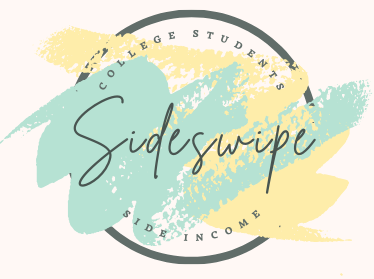
Introduction
I’m going to set the scene for the bustling life of a university student in South Africa, where academics and finances often engage in a delicate dance. This isn’t just about scraping by; it’s also about finding ways to thrive financially without compromising your education.
The real challenges you might face emanate from juggling class schedules to managing a budget that seems to tighten with each passing day. I’m here to guide you through the landscape of earning while you learn.
Your main goal is to graduate with flying colors. However, in the real world, you’ll need more than just good grades to support yourself. And let’s face it, being able to afford the occasional splurge also makes campus life a whole lot sweeter.
We’re going to look at various avenues you can explore, ranging from traditional part-time jobs to modern, digital platforms that can put money in your pocket. With the right strategy, you can avoid burnout and keep your bank account out of the red.
Let’s move into the nitty-gritty of part-time jobs that are up for grabs and how to snag them. It doesn’t matter if you’ve got your eyes set on a job in the library or if pulling espresso shots is more your style—an opportunity is waiting. Choose something that resonates with you and carries the potential to enrich your student life, both academically and financially.
Traditional Part-Time Jobs: Opportunities on and off Campus
As a university student in South Africa, explore both on and off your campus opportunities. These options offer a mix of flexibility and income potential, which is vital for balancing your academic and work life. Just don’t focus too much on perfection; find something that feels like a good fit for your schedule and skills.
On campus, you may find a variety of jobs that can accommodate your class timetable. From tutoring high school learners or fellow university students in subjects you excel at to managing the front desk at the university library or assisting in administrative offices. These roles usually accommodate the student lifestyle and can be a reliable source of income while you’re studying.
Off-campus jobs offer a different experience and can often pay a bit more. Retail positions, working in cafes or bars, and even internships related to your field of study provide you with not just money, but valuable work experience. When choosing these jobs, consider travel time and how you can effectively manage work alongside your coursework.
A powerful strategy I like to leverage is to turn to your university’s career center. They can be an incredible asset in your job search, offering resume workshops, interview preparation, and job listings specifically targeted at students. Remember, your first attempt doesn’t need to be your last – it’s about starting somewhere and learning as you go.
As we prepare to step into the digital domain of the gig economy, it’s important to realize that the landscape of student jobs isn’t confined to just the physical world. In the following section, you’re going to find out about how you can use online platforms to carve out a niche for yourself and make money from virtually anywhere – even from the comfort of your dorm room.
Leveraging the Gig Economy: Freelancing and Online Platforms
You’re going to find out some incredible opportunities that the gig economy provides to university students in South Africa. With the advancement of technology and the proliferation of high-speed internet, part-time jobs are no longer confined to the physical world. Digital platforms now allow you to offer services globally.
In my opinion, freelancing is a goldmine for students with skills like writing, graphic design, data entry, or programming. Platforms such as Upwork and Fiverr serve as gateways where you can advertise your skills and find clients. I’m here to help you determine how to kick-start your freelancing career while managing your studies effectively.
When you start freelancing, build a strong profile that showcases your skills and your availability. Include samples of your work, if possible. You can always begin with smaller gigs that fit into your study schedule and grow from there.
Don’t worry too much about not finding work immediately. It often takes time to land your first gig, but once you do, focus on delivering quality work and earning positive reviews. This will be your stepping-stone to securing more clients and better-paying projects.
Choose something that resonates with you – freelancing is not only about making money; it’s also an excellent way to gain experience in your field of interest. So, while you earn, you’re also building a portfolio that can benefit you after graduation.
Entrepreneurial Endeavors: Starting Your Own Business
Take the leap into the entrepreneurial world, even as a busy university student in South Africa. Starting your own business isn’t just about making money; it’s also about gaining invaluable skills that will serve you for life.
Let’s explore how feasible it is for you to set up a student-run business. With the right approach, you can transform even the simplest idea into a profitable venture while still keeping up with your studies.
Here are some inspiring examples of businesses that students like you have started. These stories aren’t just motivational; they give us tangible blueprints to follow.
Tech Startups: Students often venture into the tech industry, developing applications, software, or websites. These could range from educational tools to mobile apps addressing specific needs.

E-commerce Platforms: Setting up online stores to sell unique products, often handmade or sourced locally. Some might focus on niche markets or showcase traditional South African products.
Social Enterprises: Students may launch businesses with a strong social or environmental mission. This could include initiatives addressing issues such as poverty, education, or environmental sustainability.
Consulting Services: Offering consulting services in areas where students have expertise. This could include marketing, graphic design, or business strategy.
Food and Beverage Ventures Starting small-scale food or beverage businesses, such as catering services, specialty coffee shops, or health-focused snack companies.
You may want to try Affiliate Marketing https://www.wealthyaffiliate.com?a_aid=bb29bc08 or to look up the incubator start ups below:

Understanding the legal and financial aspects of running a business is crucial. I’ll discuss the basics of registration, taxes, and financial management to help you start on solid ground. Remember, you can always adjust your approach down the road.
Now, don’t just take my word for it. I really hope that you dive into the entrepreneurial journey yourself. It’s one that can open doors to countless opportunities and personal growth. And remember, your university experience is a prime time to experiment and explore these potentials.
You might be used to snapping photos of your food in restaurants, but have you considered that it may actually be your revision notes that are your ticket to Instagram fame?
Studygrams (that is, Instagram accounts dedicated to studying) have been quite popular for a while. One Law student has gained tens of thousands just by posting pictures of her revision notes.
Her pictures of highlighters, gel pens, note cards and revision snacks have racked up thousands of likes. And best of all, her social media following has allowed her to earn some extra cash.
Referring your parents to different organizations is an amazing way for you and them to get free money.
To make sure it’s mutually beneficial to you and your parents, think about what websites and services you regularly use that you think your parents could find useful too. Then, have a look online to see if those companies have a refer-a-friend scheme.
A lot of these schemes offer cash rewards or in-app credit.
Banks generally have the biggest cash rewards/vouchers for referring friends and family. However, these offers are unlikely to relate to student bank accounts. Instead, while you’re at university, it may be more helpful for you and your parents to separately look for banks that offer good sign-up offers.
eBooks are so popular these days. More people than ever are becoming self-published authors. As a result, there are loads of different eBook publishing platforms to choose from.
These sites essentially provide a space for you to advertise and sell copies of your eBook. They all work slightly differently and each will take a small percentage of the profits.
Let’s review one of the best publishing sites below.
Amazon Kindle Direct Publishing (KDP)
Amazon sells a HUGE number of eBooks, so its publishing platform, Amazon KDP, is massively popular too. Through it, you’re able to reach a vast audience. All this is offered freely with up to 70% Royalties.
The platform accepts a number of different file formats. But ultimately they all end up converted into a Kindle book for sale only on Amazon. KDP gives your book a free ASIN, which works like an ISBN.
Conclusion
In conclusion, the gig economy has reshaped the landscape for university students, offering both opportunities and challenges whilst studying. Through freelancing and online platforms, students can harness their skills, find flexible study schedules, and broaden their potential to address financial issues. However, this new paradigm also demands adaptability, self-discipline, and a keen understanding of market trends. As the gig economy continues to evolve, stakeholders must prioritize fair labor practices, access to benefits, and sustainable growth to ensure that all participants can thrive in this dynamic ecosystem. By embracing innovation, collaboration, and inclusivity, we can leverage the potential of the gig economy to impart economic empowerment and foster a more agile and resilient university student for the future.

Yes, there are many ways to make money as a University student of South Africa.
Blessings always,
Maxine 🙂